
Congratulations to all our 2025 WiT Awards Finalists
This year’s finalists represent the very best of innovation, purpose, and passion — driving meaningful change across Queensland and beyond.
From grassroots community programs to global breakthroughs, these inspiring women are:
-
Co-creating culturally responsive sleep health programs that blend Indigenous knowledge with modern science — improving wellbeing and creating career pathways for community-based sleep coaches.
-
Using artificial intelligence to tackle air pollution and safeguard public health.
-
Merging big data and cutting-edge tech to protect endangered species and our ocean ecosystems from the impacts of climate change.
-
Delivering innovative brain health tools that shift public understanding and empower millions to take charge of their mental wellbeing.
-
Strengthening Australia’s digital resilience through critical cyber security advancements.
-
Inspiring young people in regional Queensland to fall in love with STEM through immersive, hands-on education programs.
-
Building inclusive innovation hubs that help everyday people turn bright ideas into real-world solutions.
-
Using advanced technology to support international peace efforts through nuclear safeguards.
And that’s just a glimpse.
These extraordinary women are not only shaping their industries — they’re igniting possibility, championing inclusion, and showing the next generation that a future in STEM is theirs to claim. Their impact is bold, far-reaching, and truly transformative.
We are proud to celebrate each of them in this year’s WiT Awards.
Join Us at the WiT Awards
Meet our 2025 WiT Awards finalists
2025 First Nations Change Maker Award - Finalists
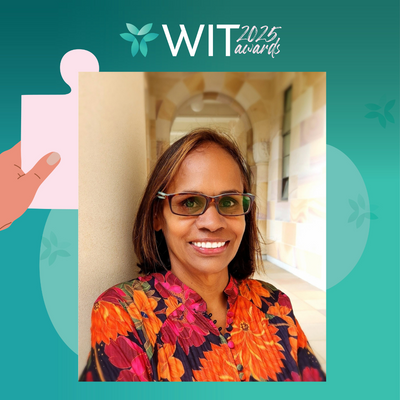
Rennae Hopkins
Rennae identifies as a strong proud Maiawali Karuwali Pitta Pitta woman of the Boulia area of Northwest Queensland. As the Indigenous Outreach Officer for the Faculty of Engineering, Architecture and Information Technology at a Queensland university, she supports Indigenous students and curricula matters in the EAIT faculty, but much more she is building relationships outside of the University with a number of Aboriginal and Torres Strait Islander communities and young people.
Her role includes outreach work to increase the number of Indigenous students in the faculty, and to also support them in a culturally safe space and inform and educate senior Faculty staff about how we achieve this in a culturally sensitive and appropriate manner.
As we are aware, Indigenous students are currently underrepresented in STEM fields at the tertiary level. By providing on campus experience days that incorporates Indigenous perspectives into hands-on engaging learning activities, we successfully build these relationships while at the same time preserving the oldest living culture in the world, in transmitting knowledge that develops a deeper understanding of scientific and engineering concepts that connects all Australians to Aboriginal and Torres Strait Islander culture and heritage.
Rennae is so honoured to do what she does and she feels grateful every day. She is taking this opportunity to inspire the next generation to become leaders in their community and increasing understanding and knowledge within her own faculty as such a privilege.
2025 Emerging Science Star Award - Finalists
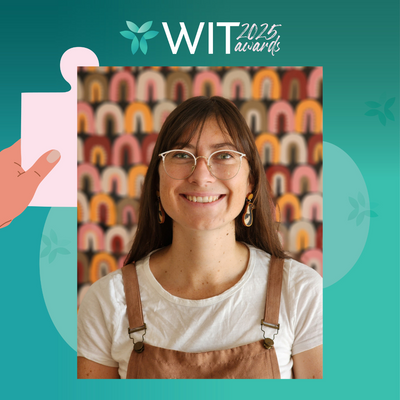
Alise Fox
Alise Fox is a stock assessment scientist, science communicator, artist, and gender and neurodivergence advocate working at the intersection of mathematics, marine science, and outreach. Her technical work involves conducting fishery stock assessments using complex modelling to determine how many fish are in the ocean, which is used to help manage wild fish populations sustainably. These assessments influence critical decisions affecting ecological, social, and economic outcomes in Australia’s seafood industry.
Alongside this, she co-leads the development of a national Communities of Practice for stock assessment science, streamlines reporting processes using R and automation, and contributes to transparent science through explainer videos and workshops. She works hard to make this highly technical field more accessible through creative science communication—developing games, interactive apps, art, and comedy performances that translate complex scientific ideas into engaging and inclusive experiences.
Her impact is broad and community-driven. In the past two years alone, she has reached over 3,000 people, mostly through volunteer initiatives. She has performed science stand-up comedy to hundreds, developed a board game to teach fishery dynamics to rural school students, and represented STEM professionals at events such as Vogue Codes and Science Meets Parliament. Her unique approach brings mathematical modelling to life, whether it’s in outback classrooms or comedy festivals.
Through this work, Alise champions alternative STEM career paths, highlighting that a successful, impactful STEM career can exist beyond academia, without a PhD, and with authenticity at the forefront.
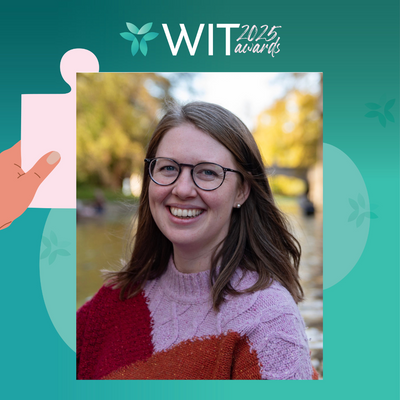
Dr Lily Bentley
Lily Bentley’s research is dedicated to advancing the conservation of migratory marine megafauna—including seabirds, turtles, sharks, and marine mammals. Not only are these species crucial for ecosystem health and human well-being, they are vital parts of our ecological and cultural heritage. Unfortunately, they also face escalating pressures from human activities and climate change, which necessitates urgent, effective conservation action.
Her work leverages cutting-edge biotelemetry (animal tracking), coupled with global data syntheses ([www.mico.eco](http://www.mico.eco)), to understand how migratory species use the ocean, identifying essential habitats and uncovering the links between them. She translates complex tracking data into actionable knowledge by developing frameworks to integrate dynamic species movements into systematic conservation planning. As part of her Queensland-Smithsonian Fellowship, and in collaboration with Queensland Parks and Wildlife and Birdlife Australia, she is currently planning new seabird tracking research in the Great Barrier Reef to inform the identification of new marine Key Biodiversity Areas. She is also co-leading WWF’s global Blue Corridors for Turtles Project, mapping important habitats and the links between them for sea turtles across the globe for use in conservation planning.
Lily combines marine biology, ecology, and data science, ultimately providing information to policymakers and conservation practitioners that addresses the science-policy gap in ocean management. Her goal is to ensure that global biodiversity targets, such as the ’30×30′ goal for protected areas and the implementation of the High Seas treaty, are effectively informed by the movements and habitat needs of migratory species, safeguarding these magnificent animals for future generations.
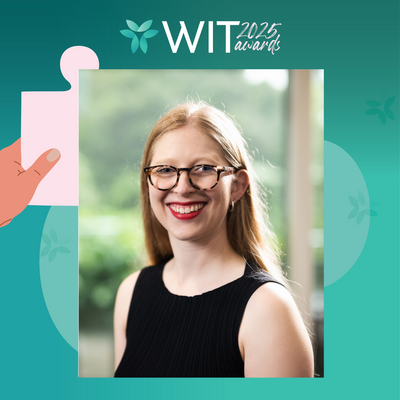
Dr Scarlett Raine
Dr Scarlett Raine is a Research Fellow and incoming Lecturer (commencing August 2025) in the QUT Centre for Robotics, Australia’s top-ranked robotics group for six years running (The Australian Magazine). Her pioneering work combines AI and robotics with marine conservation – specifically, she designs computer vision algorithms to monitor underwater environments at scale, while minimizing costly and time-consuming expert input.
She then translates these complex AI techniques into real-world applications to automate species identification in underwater images. This enables monitoring at unprecedented scales – analyzing terabytes of imagery across entire reef systems, which would be infeasible with manual methods.
Dr Raine’s research has led to significant environmental impact – she created the first multi-species seagrass meadow monitoring approach and developed the DeepSeagrass dataset, making it possible to track these vital and overlooked ecosystems at scale. Another recent example, in collaboration with the Australian Institute of Marine Science, is her AI-driven approach to automated targeted reseeding of temperature-resilient baby corals across the Great Barrier Reef. Her algorithms automatically identify the best locations to place baby corals, supporting Australia’s ambitious goal of deploying three million coral larvae devices in the coming years.
She also highlights the economic impact of her AI approaches: they free up marine scientists by reducing the time and cost of underwater image analysis by up to 60-fold, while also making the analysis more accessible to resource-constrained conservation groups. Dr Raine’s work represents a crucial breakthrough in the emerging technology landscape as well as in the fight to protect marine environments, offering hope for reefs worldwide.
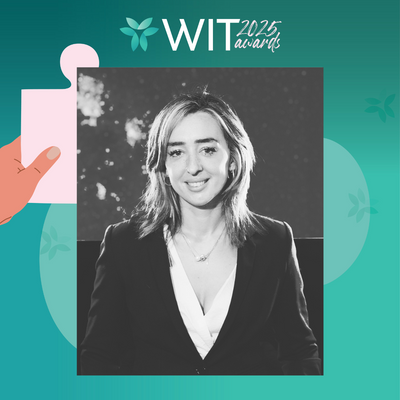
Dr Rossana Ruggeri
Rossana Ruggeri is an astrophysicist exploring one of the Universe’s greatest mysteries: why its expansion is accelerating. Using the Dark Energy Spectroscopic Instrument (DESI)—the most ambitious galaxy survey ever undertaken, surveying over 40 million galaxies—she is working to understand the evolution of the Universe and its ultimate fate.
In April, 30 years after the last major breakthrough in this field, her team found the first evidence that the mysterious force behind the Universe’s accelerated expansion rate may be weakening—a groundbreaking result if confirmed by future data. This work was featured by ABC, The New York Times, and other major media outlets.
Social impact: Rossana mentors and trains multiple under-represented students in STEM, for example through QUT’s IARTS for Indigenous students, and has volunteered with non-profits supporting students affected by poverty. She believes everyone should have access to education. In her classes, she uses active teaching approaches, encouraging inclusive discussion through diverse media—reflected in excellent student feedback and higher attendance. She serves on international DEI committees, focusing on building more inclusive policies within scientific collaborations. She frequently engages with the public—through school workshops, radio interviews, planetarium events, and major science festivals—as she believes astronomy is a powerful tool to inspire interest in STEM.
Economic and technological impact: Rossana recently published papers on advanced data analysis techniques from cosmology, including machine learning tools now applied in climate modelling and medical imaging, generating cross-sector impact and demonstrating how important basic research findings can be.
2025 Raising the Regions Award - Finalists
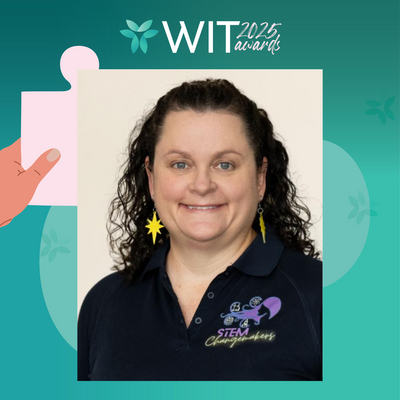
Sarah Chapman
STEM Changemakers is an innovative initiative designed to transform Australia’s ability to tackle complex STEM challenges. It achieves this by increasing both the number and diversity of participants in the STEM workforce – particularly through the targeted, integrated engagement of three key groups: underrepresented girls in regional areas, their families and educators, and local STEM professionals.
The program focuses on girls from diverse backgrounds, including those in low socioeconomic communities, Aboriginal and/or Torres Strait Islander backgrounds, and those who may lack family support. Over the course of two months, the program connects girls with local STEM industries to co-design solutions to real, place-based challenges currently facing their communities. These weekly half-day workshops are supported by relatable role models, hands-on learning, and long-term community engagement. At the same time, the program shifts the perceptions of family supporters by involving them directly, helping build broader encouragement and understanding of STEM pathways. STEM professionals also receive guidance and training, improving how they connect with and support young people from diverse backgrounds – learning how to communicate, inspire, and collaborate more effectively.
This integrated program design addresses three groups simultaneously, creating a strong, scalable model which has demonstrated impact which lasts after the formal program ends. In 17 months to May 2025 and after 1,700 engagements, 88% of program participants aspire to careers in STEM, coupled with a 96% increase in girls’ perception of engineering. Family supporters’ awareness of STEM pathways increased by 73%, and STEM Industry’s awareness of effective engagement increased by 77%.
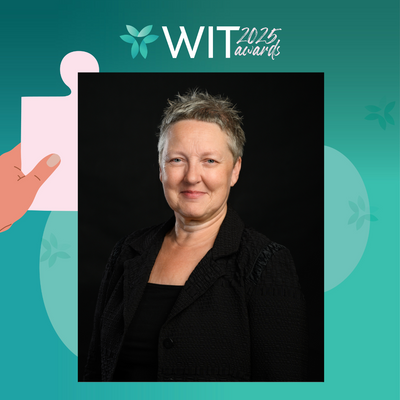
Professor Rowena Barrett
Professor Rowena Barrett is a distinguished academic leader and the current Pro Vice-Chancellor (Entrepreneurship and Regional Innovation) at QUT. With a career spanning three decades across Victoria, the UK, Western Australia and Queensland, her significant contributions are to entrepreneurship education, regional innovation, and the development of inclusive innovation ecosystems.
Her leadership is grounded in the belief that entrepreneurship is the pursuit of opportunity beyond the resources currently controlled, a philosophy that underpins her efforts to democratize innovation and empower communities to shape their futures. Bringing expertise in business, innovation and community, underpinned by scientific evidence, in recent years Rowena has:
– Created and led the QUT’s Entrepreneurship initiative, that encourage all forms of entrepreneurship across the QUT community.
– Embedded entrepreneurial thinking and mindset development such that QUT was named 2023-4 Asia-Pacific Entrepreneurial University of the Year.
– Developed and directed Queensland Connects, a leadership program for regional innovation ecosystems, which in 2025 has been licensed into WA as WA Connects.
– Served as inaugural Chair of the Queensland Innovation Advisory Council, working alongside two Chief Entrepreneurs to influence state-wide inclusive innovation policy and aligning it with the growth of emerging industries.
– Strengthened QUT’s partnership with the Bundaberg region, emphasising the region’s potential in agriculture, automation, and environmental management, noting that local businesses like Bundaberg Brewed Drinks are already leading with robotics and innovation.
Rowena leads with purpose and provides space for others to flourish, attributing success to community and youth engagement in context aware, place-based initiatives.
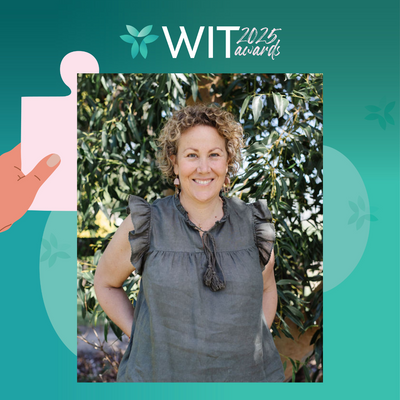
Julia Spicer - The Connection Table - Highly Commended
The Connection Table is a purpose-built platform and national facilitation practice designed to strengthen leadership, amplify advocacy, and accelerate impact across regional Australia. Operating at the intersection of community, industry, research and government, it exists to bring the right people together—with clarity, data, and direction—to tackle complex challenges and lead systemic change.
They support organisations and leaders to better understand their place in the system, identify leverage points, and collaborate with intention. Using a mix of strategic facilitation, network mapping, and insight-driven engagement processes, The Connection Table helps uncover shared priorities and turn conversations into coordinated action.
At its core, The Connection Table is about removing silos—between sectors, levels of government, and regions—so that ideas, funding, and leadership can flow where they’re needed most. We help local changemakers access national platforms, influence decision-making, and lead from wherever they are. It’s impact spans social, economic, and environmental domains. Socially, they build leadership capability and confidence—especially among women, regional entrepreneurs, and emerging voices. Economically, they support project design and partnerships that unlock investment and drive innovation. Environmentally, they foster collaborations that value place-based knowledge and long-term stewardship.
The Connection Table is not just a service—it is a movement to shift how we lead, advocate, and create solutions together. It’s leadership infrastructure for a more connected, resilient Australia.
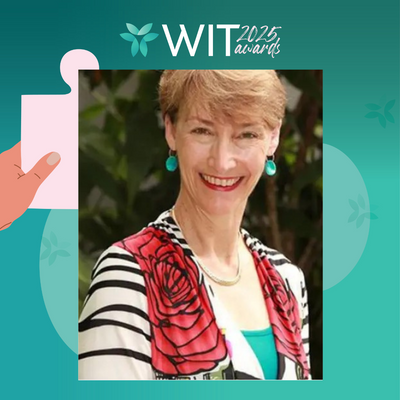
Professor Claire Jackson AM
As the Director of the Centre for Health System Reform and Integration at the Mater Research Institute-UQ, Claire Jackson leads initiatives that reshape healthcare delivery through evidence-based, co-created innovations, particularly for rural and underserved communities. Her work bridges research, policy, and practice to deliver sustainable, digitally supported, integrated models of care. Her contribution to the field was recognized in 2021 when she was awarded a Member of the Order of Australia (AM) for significant service to health reform and general practice medicine.
Flagship programs like the eConsultant and Virtual Integrated Practice (VIP) models are revolutionising how primary care is delivered in rural Australia, providing specialist access via secure digital channels and embedding experienced urban GPs in remote practices. These innovations directly respond to workforce shortages and ensure continuity of care for Indigenous, elderly, and remote populations.
Claire Jackson’s contributions extend beyond research. She actively shapes policy as a member of national advisory groups and presents internationally to influence health system reform globally. Through alliance governance, practice improvement tools such as the Primary Health Care Improvement Tool (PC-PIT), and programs like the Alliance for Healthy Ageing, she helps develop multidisciplinary, regionally anchored networks to address frailty, improve outcomes, and reduce hospitalisations.
The technical scope of her work includes digital health integration, implementation science, health systems policy, and organisational change. The social and economic impacts are profound, enhancing service access, workforce capacity, patient experience, and sustainability in regional Queensland and beyond.
2025 Public Sector Excellence Award - Finalists
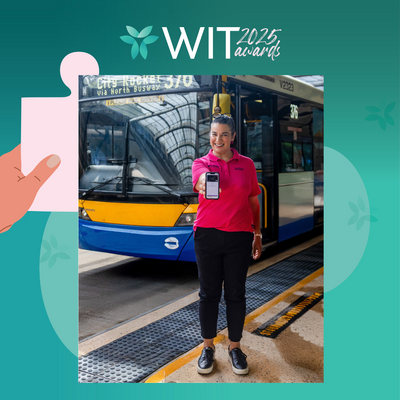
Anjuna Singh
Delivering EMV payments on buses in South East Queensland in 2025 and 50c public transport fares across Queensland in 2024 is revolutionising how Brisbane sees and uses public transport. With practically everyone having a ticket in their pocket, be it their physical credit or debit card or on their phone or watch, and with any journey only costing 50c it has never been easier to jump onboard! I led the team that delivered the technological IT systems changes, as well as the customer communications, policy and stakeholder engagement required to successfully and seamlesslesly deliver both EMV payment of ferries and buses in SEQ and 50c public transport fares right across Queensland in 2024/2025 with our technology partner Cubic Transportation Systems.
We worked with over 16 bus and ferry operators across 2,900 vehicles and vessels and 37 depots to install ticketing technology and activate the payment technology system for use from April 2024 to March 2025. This required extensive hardware and software configuration, bus and ferry driver training and customer communication. Since April 2024 we have had over 7.6 million customer trips using the new payment technology. This new payment technology coupled with the introduction of 50c fares in August 2024 and their permanency from February 2025 has driven patronage growth right across the entire public transport network in SEQ of more than 18% from June 2024 to June 2025, as well as improved customer advocacy for public transport with 87% of people in SEQ.
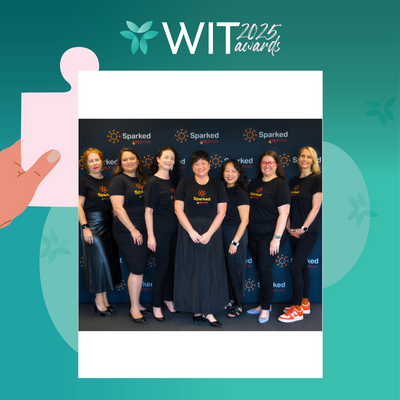
Sparked Leadership Team - CSIRO
The Sparked AU FHIR Accelerator is a national, collaborative initiative to standardise health information exchange across Australia using HL7 FHIR – Fast Healthcare Interoperability Resources. In other examples across the globe, standards are implemented from the top down. This approach does not always ensure they are safe and fit for purpose. Sparked’s point of difference is our true co-design approach to standards where we bring together technical experts, clinicians, government agencies, consumers, peak bodies, and vendors to design, agree upon and implement interoperable digital health solutions that are safe, scalable, and future-ready. To date we have 1208 community members who have provided us with 20,604 hours of community expert time.
As a result, key impacts are already being delivered such as the AU Core FHIR Implementation Guide led by Danielle Tavares-Rixon, which enables a foundational standard for interoperability across Australia for all use cases including: ePrescribing, patient summary, chronic condition management, eRequesting, aged care and health checks. All this amounts to better care for patients and ease of data exchange for clinicians and allied health professionals providing care.
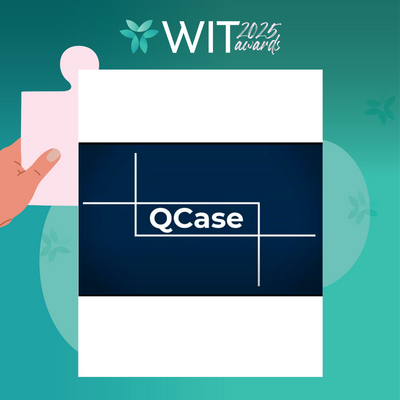
QCase Project and Transition Teams
QCase is a transformative digital platform revolutionising civil justice in Queensland. Developed for the Queensland Civil and Administrative Tribunal (QCAT) and Magistrates Courts, QCase enables end-to-end digital management of minor civil disputes, offering 24/7 access for individuals, legal professionals, and organisations to lodge documents, track progress, and view case information.
Technically, QCase integrates Microsoft Dynamics 365, DevOps pipelines, and Power Automate with legacy systems to provide secure data transactions, real-time updates, and automated workflows. It replaces a traditionally paper-based process, significantly reducing the volume of physical documents handled across the court system.
QCase has improved case processing times by enabling faster information access and more efficient case tracking. The system delivers accurate, real-time reporting, increasing transparency of workloads across different court locations and allowing judicial and registry staff to locate documents and monitor case statuses regardless of geographic boundaries.
Automated correspondence features streamline communication by generating timely notifications to applicants and relevant parties, enhancing service delivery and reducing delays. Additionally, the guided digital experience simplifies court interactions for self-represented litigants, improving accessibility and user confidence.
Professionally, QCase represents a landmark in public sector digital transformation, delivered through collaborative leadership, rigorous testing, and effective change management. Its success lies not just in its technical execution, but in the inclusive, user-centred design that prioritises access to justice for all Queenslanders.
QCase sets a bold new benchmark for court innovation, combining technology and teamwork to deliver lasting impact.
2025 Lifting Communities Award - Finalists
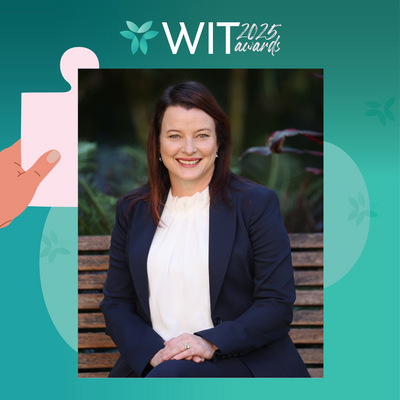
Dr Catherine Franklin
Dr Franklin is a psychiatrist and has devoted her 20 year career to improving the health and mental health of people with intellectual disability and autistic people. Her work encompasses clinical care, service innovation, education and applied research with over $10M secured in competitive funding in the last 5 years. She also advocates for this community through media and systemic advocacy. Serving as the Director of the newly established Queensland Centre of Excellence in Intellectual Disability and Autism Health at Mater Hospital Brisbane, her unique statewide clinical service and research centre is dedicated to enhancing health outcomes for adolescents and adults with intellectual disability or autism.
In 2022, she campaigned to the Queensland Government for improved services and following this, an $18M annual investment was announced to establish the Queensland centre and 12 new IDD mental health teams. Subsequently, she successfully led the competitive tender application that established the Queensland Centre of Excellence in Intellectual and Developmental Disability Mental Health—a groundbreaking Australian first. This Centre, which she now directs, collaborates with 12 statewide mental health teams to bring specialist support to rural and remote areas, advancing health equity across Queensland. with over $10M secured in competitive funding.
The co-designed EASY-Health project is one of her innovations, which introduced Australia’s first online education for mainstream clinicians, featuring actors with disabilities. Now available across Queensland Health and mandated nationally across Medicare Urgent Care Clinics, this dedication has reshaped clinician perspectives and significantly improved equitable access to care.
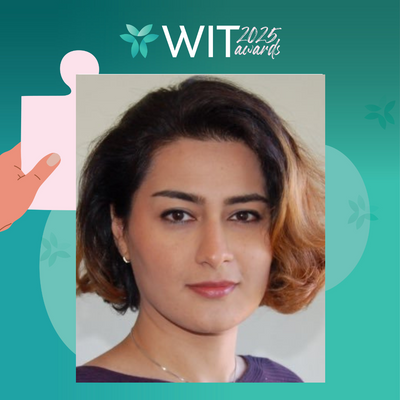
Dr Maryam Haghighat
Maryam is a researcher and lecturer in computer vision and AI at QUT, where she combines cutting-edge research with a passion for community impact. Her expertise in foundational AI drives the development of technologies that translate advanced research into practical solutions across healthcare, robotics, and environmental resilience, improving safety, wellbeing, and sustainability.
Her multidisciplinary projects have been deployed in Oxford hospitals to improve medical diagnostics, Mater Hospital in Brisbane, CSIRO’s robotics systems for safe and robust operations in challenging natural environments, and Australia’s SmartSat program for mitigating natural disasters. In 2024 alone, her work secured over $10 million in competitive government and industry funding and were published in world-leading venues, earning recognition for both scientific innovation and real-world relevance. Her research demonstrates how AI can deliver tangible benefits for society across different sectors.
Equally committed to equity and education, Maryam leads QUT’s Spark Program and supports ASPIRE and other STEM initiatives, connecting female university students with high school girls. Spark is an outreach initiative that empowers female engineering students to become STEM ambassadors, delivering engaging workshops and inspiring high school students.
Through hands-on activities, discussions with relatable role models, and ongoing mentorship, the program encourages students to see engineering not just as machines or code, but as a powerful tool to improve lives, drive positive change, and shape a better future for all.
By bridging research excellence with inclusive outreach, Maryam is informing and inspiring the next generation in AI, building a sustainable pipeline of diverse STEM talent, and reshaping how engineering is perceived, as a discipline that empowers individuals and lifts entire communities.

Sarah Chapman
STEM Changemakers is an innovative initiative designed to transform Australia’s ability to tackle complex STEM challenges. It achieves this by increasing both the number and diversity of participants in the STEM workforce – particularly through the targeted, integrated engagement of three key groups: underrepresented girls in regional areas, their families and educators, and local STEM professionals. The program focuses on girls from diverse backgrounds, including those in low socioeconomic communities, Aboriginal and/or Torres Strait Islander backgrounds, and those who may lack family support.
Over the course of two months, the program connects girls with local STEM industries to co-design solutions to real, place-based challenges currently facing their communities. These weekly half-day workshops are supported by relatable role models, hands-on learning, and long-term community engagement. At the same time, the program shifts the perceptions of family supporters by involving them directly, helping build broader encouragement and understanding of STEM pathways. STEM professionals also receive guidance and training, improving how they connect with and support young people from diverse backgrounds – learning how to communicate, inspire, and collaborate more effectively.
This integrated program design addresses three groups simultaneously, creating a strong, scalable model which has demonstrated impact which lasts after the formal program ends. In 17 months to May 2025 and after 1,700 engagements, 88% of program participants aspire to careers in STEM, coupled with a 96% increase in girls’ perception of engineering. Family supporters’ awareness of STEM pathways increased by 73%, and STEM Industry’s awareness of effective engagement increased by 77%.
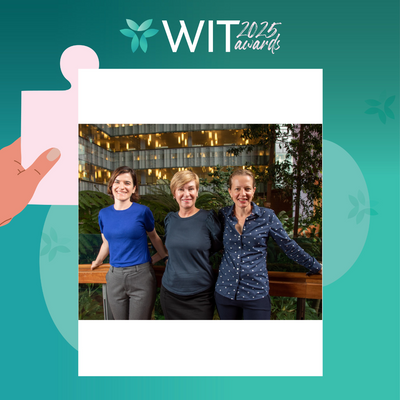
SPARQ-ed Students Performing Advanced Research QLD - Highly Commended
Biomedical educational program SPARQ-ed is opening the doors to science and research for high school students from across Queensland.
The team has engaged with more than 10,000 high school students since 2020 to inspire them to consider STEM subjects and careers. Implementing strategies that promote engagement for all Queenslanders has been a priority. Strategies aim to remove barriers for access for students from disadvantaged communities, regional and remote Queensland and from groups traditionally underrepresented in STEM.
The program’s team is jointly staffed by the Translational Research Institute (TRI) and the Department of Education. They are based at TRI in Brisbane and collaborate with researchers from The University of Queensland, Queensland University of Technology, Mater Research Institute and Queensland Health to develop programs inspired by current practise and foster curiosity in participants. An active Alumni network provides students with ongoing opportunities to engage with TRI and its partners, fostering continued learning and shared passion.
They also travel around Queensland delivering hands-on workshops, building strong connections with regional, rural and Indigenous communities. They work with the Lions Medical Research Foundation to reduce the financial burden on families to access the programs.
Student and family testimonials demonstrate that the SPARQ-ed, TRI based researchers and LMRF collaboration is making a major difference to rural and regional students – and by extension, their communities.
SPARQ-ed activities are igniting curiosity, broadening horizons and providing context for classroom studies.
2025 Future Focused Business Achiever Award - Finalists
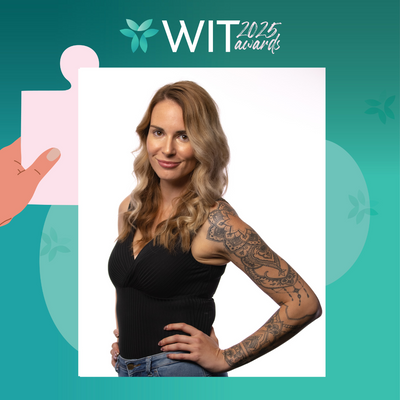
Stacey Telford
Stacey is the General Manager at Schoolzine, an Australian EdTech company that delivers digital communication tools to help schools better engage with their communities. Our platform supports over 1,500 schools across Australia and New Zealand, improving accessibility, reducing admin load, and streamlining the way schools share information with families.
I lead our product strategy, national operations, customer success and service delivery functions. Since taking on the role, I have integrated two acquired businesses, replaced six disconnected legacy systems with one scalable solution, and introduced data-led processes that give us better visibility across performance, resourcing and customer needs.
We have launched practical automation features, overhauled our phone and support systems, and introduced agile delivery methods that allow us to respond faster to real-world feedback. Our platform includes newsletter and website publishing, secure forms, event booking, parent communication tools and sports carnival management software.
These tools do more than reduce workload. They help schools connect with parents who speak different languages, navigate digital access barriers, and manage complex schedules with fewer resources. The result is improved communication, greater community engagement, and better outcomes for students.
Our work sits at the intersection of technology and trust. We build scalable systems that create social and economic value. We are not just improving processes. We are supporting school leaders, empowering staff, and making the digital layer of education simpler and more inclusive for the communities who rely on it every day.
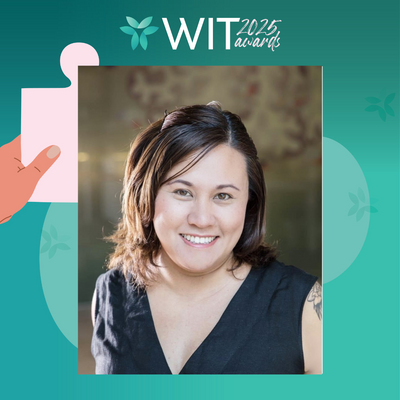
Clarissa Yates - Ketim Technologies
Ketim Technologies, is building the world’s first integrated blood biomarker platform to predict, diagnose, and treat postpartum depression (PPD) and related neuropsychiatric conditions. Using ethically sourced biobank cohorts and clinically validated plasma samples, it has identified a panel of novel protein biomarkers capable of stratifying women at risk of PPD as early as mid-pregnancy. This platform is designed to deliver both a predictive diagnostic test and identify therapeutic targets to support personalised treatment strategies.
Their work delivers impact across scientific, social, and economic dimensions. Scientifically, they are addressing a critical gap in mental health diagnostics by developing the first objective, blood-based screening tool for early detection of PPD. Socially, they empower women, families, and clinicians with timely, data-driven insights to support early intervention and reduce stigma. Economically, their innovation targets a significant health system burden—perinatal mental illness costs Australia more than \$877 million annually and remains a leading cause of maternal morbidity and mortality.
As a female-founded company, Ketim Technologies embodies the values of advancement, connection, and empowerment. They connect perinatal researchers, clinicians, and end users to shift the paradigm in maternal mental health care—from reactive to preventive. Driven by lived experience and scientific rigour, they are reimagining how biotechnology can create a measurable, meaningful difference in women’s lives.
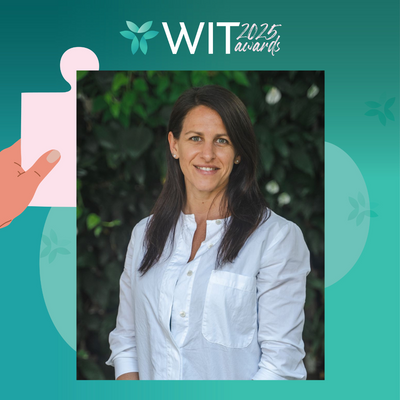
Dr Laura Navone
Did you know it takes 1,000 litres of water to produce one litre of cow’s milk? That’s about 12 full bathtubs! As Australians increasingly seek dairy alternatives driven by ethical and environmental concerns, science is offering sustainable solutions that deliver the same taste and nutrition without the environmental cost.
As a Synthetic Biologist, I am at the forefront of this transition, leading a scientific team to develop next-generation food ingredients through precision fermentation. My work bridges science, sustainability, and industry, collaborating with partners across academia and the private sector to turn breakthroughs into real-world impact.
I am passionate about using biology to reshape industries towards a more sustainable future. My projects span from creating cow-free dairy products and virus-resistant textiles during COVID-19 pandemic, to wool recycling technologies, and enzymatic solutions for livestock— including a shampoo for cows.
I completed my PhD in Molecular Biology in 2014 in Argentina and moved to Australia the same year to lead research at UQ and QUT. I am a Partner Investigator in the ARC Centre of Excellence in Synthetic Biology and previously held a role on the Executive Committee of Synthetic Biology Australasia (SBA), advocating for the next generation of leaders in the field.
After more than a decade in academia, I transitioned into the dynamic world of biotech startups, one of the most rewarding chapters of my career. What drives me most is collaborating with brilliant scientists to solve complex challenges and deliver tangible benefits for both industry and society.
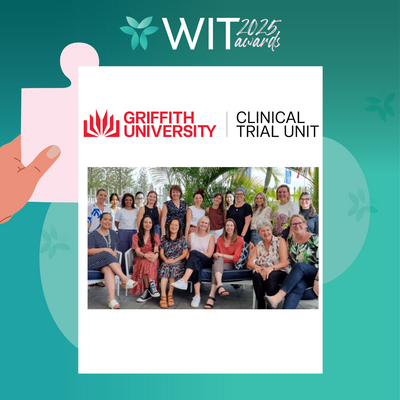
Griffith University's Clinical Trial Unit
Founded in 2015 as a Core Research Facility at Griffith University, our Clinical Trial Unit (CTU) has grown into an internationally recognised, community-centred clinical trial site driving scientific innovation and healthcare advancement. Equipped with purpose-built facilities for Phase 1-4 trials and a comprehensive quality management system, we ensure robust governance, compliance, and efficiency in clinical research.
With expertise spanning chronic and rare diseases, vaccine trials, cohort studies, GMOs, medical devices, and complementary medicines, we have successfully completed 70 commercial trials, accelerating access to groundbreaking treatment options—some achieving TGA approval and PBS listing. Our academic rigor, fast processes, and high participation rates set us apart in delivering impactful translational research.
Beyond research, our growth from a start-up to a multimillion-dollar enterprise has fostered significant economic impact—creating jobs, training undergraduates and postgraduates, and building a network of skilled clinicians across public and private sectors. Importantly, we provide flexible work arrangements with professional development opportunities, enabling our all-female team to thrive in this fast-paced industry while managing family commitments.
We have strengthened Queensland’s biomedical industry, spearheading clinical trial development on the Gold Coast while attracting investment and industry collaboration. Through strategic community engagement and education, we have built a volunteer database of over 5,000 participants, empowering individuals with access to innovative treatment opportunities while advancing healthcare outcomes.
As a trusted partner within the GCHKP ecosystem, our commitment to excellence continues to elevate Queensland’s Life Sciences sector, bridging academia, industry, and government to shape the future of medical research.
2025 Excellence in Research Award - Finalists
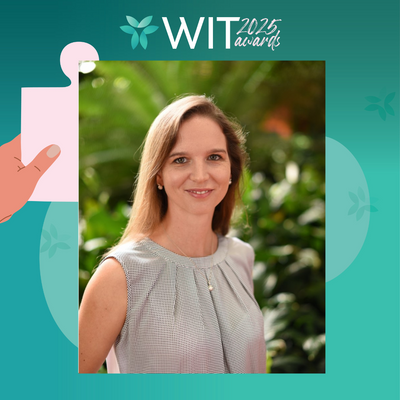
Dr Janin Chandra
Janin Chandra is a Cancer Immunologist who strives to cure cancers that predominantly affect women. Cervical cancer is caused by human papillomavirus (HPV) and affects more than 650,000 people worldwide every year. It is the second most common cancer in women aged 15 to 44. Despite the availability of a vaccine which prevents infection, globally, an estimated 350,000 women continue to die from cervical cancer every year, due to insufficient global vaccine uptake and screening. Furthermore, an uncertain yet rising number of people succumb to other HPV-driven cancers including anogenital and throat cancers. Those with the worst prognosis are typically less privileged. Australian First Nations women are 3.8 times more likely to die from cervical cancer than non-Indigenous women, highlighting serious issues of health disparity.
New treatments for HPV-cancers are urgently needed and depend on the identification of new therapeutic targets through discovery research. Her research studies how HPV disregulates immunity and transforms normal cells into cancer cells. Janin has discovered prognosis-informing molecular patterns and key mechanisms of immune modulation that enable the development of HPV-driven cancers. These discoveries have been published in high-quality scientific journals and influence immunotherapy developments worldwide. She has progressed novel experimental therapies to early clinical trials and provided first evidence of clinical efficacy. Her research vision is firmly aligned with the ambition to advance women’s health and close the gaps of gender and cultural disparities, both in health and economically, through initiatives in research training and equity advocacy.
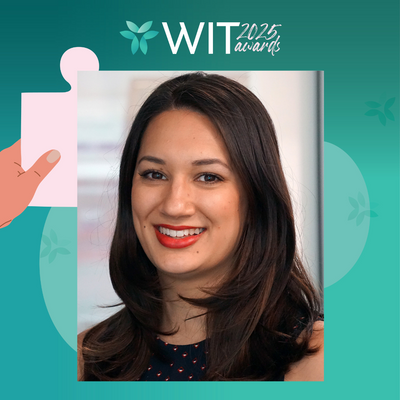
Dr Jacqui McGovern
I lead pioneering research into childhood bone cancers, designing smarter, personalised treatments that preserve lives and limbs. My research program focuses on cancers that interact with bone, with a particular emphasis on osteosarcoma, the most common primary bone cancer in children and adolescents. My goal is to improve clinical outcomes and quality of life for patients with bone tumours through innovative research that combines cancer biology, advanced biomaterials, and tissue engineering.
My research centres on three key pillars:
1. Personalised Medicine – We grow patient-specific tumour organoids in the lab to test and predict individual chemotherapy responses.
2. Targeted Chemotherapy Delivery – We develop biodegradable implants that deliver chemotherapy directly to tumour sites while limiting systemic toxicity.
3. Bone Regeneration – We apply regenerative medicine techniques to stimulate bone regrowth following tumour resection, aiming to avoid prosthetics or amputation and restore proper limb functioning.
This integrated approach provides a new way to study tumour–bone interactions and test therapies in highly relevant preclinical models. My team collaborates closely with clinicians and industry to ensure our work has real translational impact.
Our models are being used to refine chemotherapy regimens, screen new drugs, and develop next-generation biomaterials. These efforts are contributing to faster, more cost-effective therapy development, with the goal to reduce clinical trial failure rates, and develop more personalised treatment pathways for patients. Ultimately my goal is to create survivable futures for young people with bone cancer by making personalised, regenerative therapies the new standard of care.
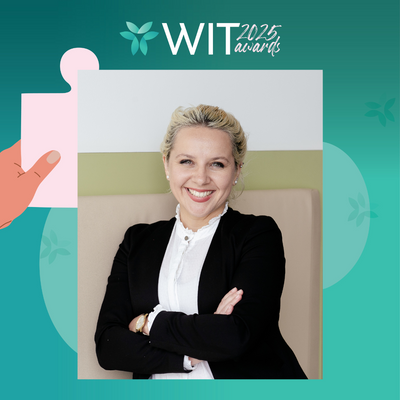
Dr Aida Branković
Dr Aida Branković is a purpose-driven researcher and engineer at the cutting edge of biomedical innovation, leading work at the intersection of AI and healthcare. Her mission is to develop innovative, safe, ethical, and trustworthy AI-enabled clinical decision support tools and medical devices that improve healthcare delivery and patient outcomes. She led the development of AI-based algorithms planned for deployment across 27 major public hospitals in Queensland, including predictive models for early warning systems in acute care and engagement in digital health programs, which enhance patient support, outcomes, and reduce costs. These solutions attracted interest from global health-tech leaders like InterSystems and Telstra, showcasing strong impact and innovation.
During her postdoc at the University of Queensland, in collaboration with the Australian start-up EMvision Medical Devices, Dr Branković invented two stroke localisation AI algorithms for a ground-breaking brain scanner—the first ultra-light, non-ionising, portable device for rapid pre-hospital stroke diagnosis. EMVision has become a global leader in stroke diagnostics, now valued at $150M. The technology’s socio-economic potential led to a five-year agreement with the Australian Stroke Alliance and $8M in funding for further development.
Beyond algorithms, she led an interdisciplinary team to develop a world-first provisional tool for assessing explainable AI—AI that can clearly communicate how and why it made a decision—addressing critical issues of transparency, fairness, and trust in AI. Guided by social impact, Dr Branković is committed to advancing STEM through ethical AI healthcare innovations. Her research has attracted leading industry partners, earned funding, and demonstrated scientific excellence and real-world impact.
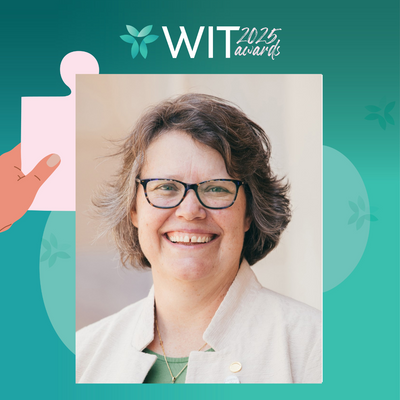
Professor Christine Anne Beveridge
Professor Christine Beveridge is internationally recognised for her groundbreaking contributions to plant developmental biology, particularly in understanding shoot branching—an essential trait underpinning crop yield, resilience, and productivity across agriculture, forestry, and horticulture. Her discovery of strigolactones as a new class of plant hormones was a transformative moment in the field, unlocking new understanding of how plants regulate nutrient uptake, root and shoot growth, weed competition, and environmental stress.
Her pioneering work has led to a fundamental shift in how the scientific community understands plant hormone interactions. She redefined the role of auxin in pruning, elevated the importance of photosynthates, and developed the most complete model of shoot branching control to date. These insights have been widely adopted by breeders in global agriculture, helping drive gains in yield and efficiency.
Professor Beveridge’s influence reaches far beyond the lab bench. A champion for collaboration and inclusion, she leads a cross-disciplinary team of biologists, geneticists, and mathematicians to translate complex network biology into practical tools for plant breeding—bridging the gap between discovery and real-world impact. Her current work aims to integrate gene-environment interactions into breeding pipelines, attracting investment from leading multinational companies.
Across her career, Christine has consistently lifted others as she climbed—mentoring countless early and mid-career researchers, particularly women, and creating opportunities for diverse voices in science. She embodies the values of equity, excellence, and enduring impact, leaving a legacy not only of scientific achievement, but of a research culture that is more inclusive, supportive, and future-focused.
2025 Excellence in Industry Leadership Award - Finalists
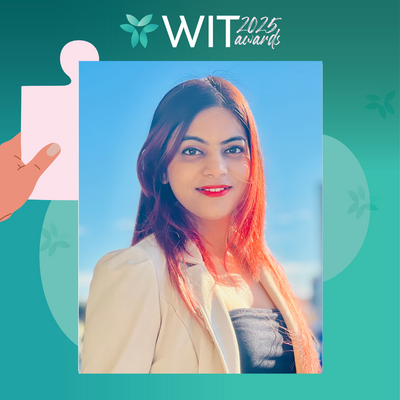
Neha Mehta
As a Technical Delivery Manager at Data#3, Neha leverages technology not just to solve problems—but to protect communities, empower organisations, and ensure the continuity of Australia’s most critical services. My focus is on ensuring the reliability, security, and performance of essential systems that power Australia’s most vital sectors—Energy, Mining, Education, Healthcare and Infrastructure. These industries are the foundation of public safety and economic stability, and I take pride in ensuring they remain operational, secure, and resilient.
Every solution I design, and implement is grounded in a deep commitment to public safety, business continuity, and compliance. Whether supporting frontline healthcare systems, maintaining uptime for essential utilities, or enabling innovation in mining operations, I drive technology initiatives that directly impact lives and livelihoods.
I lead a cross-functional team of experts across security, networks, cloud, and infrastructure, driving seamless, scalable, and secure solutions. My leadership approach combines strategic foresight, technical expertise, uplifting people and a relentless focus on outcomes. I ensure we operate as a unified team—responsive, resilient, and aligned with mission-critical outcomes.
My strong commitment to data protection, privacy compliance, and operational integrity allows the organisations I support—from national charities to industry leaders—to navigate digital transformation with confidence.
At the core of my work is a clear mission: to use technology not just to support operations, but to protect people, enable progress, and build lasting trust.
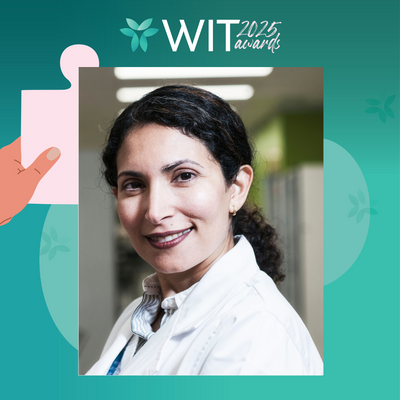
Dr Lalehvash Moghaddam
As a Senior Polymer and Industrial Chemist and Program Leader in Bioresources, Bioprocessing and Biorefining at QUT’s Centre for Agriculture and the Bioeconomy, Lalehvash leads industry-focused research to accelerate the transition from fossil-based to bio-based economies. With over 15 years’ experience developing technologies that turn agricultural biomass into renewable fuels, chemicals, and materials, Lalehvash brings deep expertise to this field. Lalehvash’s journey began in petrochemistry, studying polymer science and degradation. Today, Lalehvash applies that expertise to lead a team creating high-performance, sustainable alternatives to fossil-derived products.
At the core of Lalehvash’s work is hydrothermal liquefaction (HTL), a cutting-edge process that mimics fossil fuel formation in hours, not millennia. HTL converts wet biomass into bio-crude oil using moderate temperatures and high pressures, eliminating the need for energy-intensive drying. Lalehvash platform is flexible for yield, cost, or performance, and scalable from lab to pilot.
Through international partnerships, such as the Queensland-Germany project, Lalehvash collaborates with industry to transform agricultural waste into bio-based foams for the automotive and outdoor sectors, delivering products that match or exceed petrochemical benchmarks.
Lalehvash’s work supports Queensland and Australia’s bioeconomy strategies by decarbonizing critical sectors, attracting global investment, and creating regional jobs. Lalehvash has published extensively with 77 articles in leading journals in the field, and works with commercial partners including Licella (Australia), Grammar (Germany), Vaudi (Germany), and both national and international experts to translate innovations into market-ready solutions.
By combining Queensland’s rich biomass resources with cutting-edge science, she is helping build a circular, climate-resilient economy, delivering environmental, social, and economic impact.

Stacey Telford
I’m the General Manager at Schoolzine, an Australian EdTech company that develops digital communication tools to help schools connect with their communities. I lead our product strategy, national operations, service delivery and customer success, using technology to solve real problems in the education space.
Since stepping into the role, I’ve integrated two acquired companies, replaced six legacy systems with a single, scalable platform, and launched a phone system transformation to improve reliability, analytics and support outcomes. These projects have improved system performance, reduced response times and delivered clearer data to schools across Australia and New Zealand.
I’ve also restructured teams, introduced agile delivery cycles and created a workplace culture focused on psychological safety and continuous improvement. My leadership has increased team retention, improved customer satisfaction and sped up product release cycles based on real-world user feedback.
Our platform supports more than 1,500 schools. It reduces admin load, improves accessibility for diverse families, and strengthens the connection between staff and parents. These outcomes have both social and economic impact. When communication flows more easily, schools run better, communities stay connected, and students benefit. Engaged school communities lead to better educational outcomes for children, and that is the impact that matters most.
STEM leadership is about more than technology. It is about building systems that serve people, and teams that are empowered to grow, question and lead. That is the environment I have built, and the kind of leadership I bring every day.
2025 Employer of Change Award - Finalists
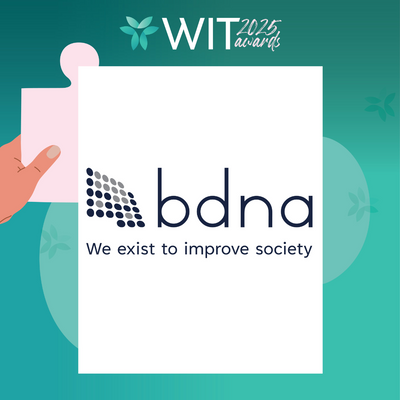
bdna (Karyn Smith)
We bring expertise and technology together for a safe and healthy future. As a purpose-led Australian organisation, bdna provides consultancy and software solutions only to projects that improve society – particularly in policing, public safety, health, education, and community services. Our services span strategic advice, project delivery, systems integration, business intelligence, organisational change, and software engineering.
Our public safety suite of software includes the forensic-register, Australia’s leading forensic case management system. It automates workflows and streamlines everything from crime scene capture to courtroom. It supports rapid decision-making at the frontline of justice and public safety.
Founded in Brisbane 18 years ago, we’ve grown to over 100 team members, driven by our people and purpose. Our team draws from diverse fields including policing, health, forensics, science, giving us unique insight into our clients’ challenges and strengthening the relevance of our solutions.
We’re not just technologists—we’re change-makers. Our impact is felt across Australia’s digital economy through projects that improve hospitals, aged care providers, non-profits, justice, policing and public safety organisations. We’ve created new jobs, supported graduates and career-changers, and fostered a culture of equity, flexibility, and continual learning.
By embedding ethical responsibility and community contribution into every engagement, we deliver more than services—we co-create lasting impact.
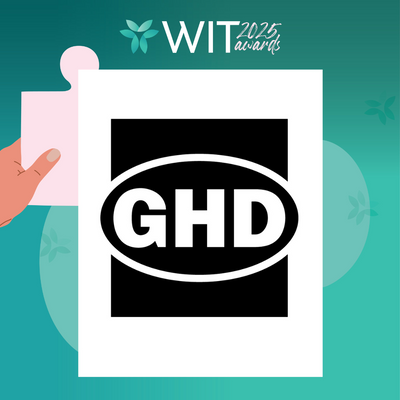
GHD (Jane Dermody)
At GHD, we believe that a career break should not mean a career end. That’s why we created the Relaunch Your Career Program; a 10-week, paid, flexible program designed to support professionals, particularly women in STEM, as they re-enter the workforce with confidence and purpose.
Launched in 2017, this national program, offered annually, has provided over 170 participants with real project experience, and a strong support network of mentors, buddies, and peers. 80% of program participants have been women with 81% of program graduates offered long-term employment following the program.
The Relaunch Your Career Program is more than a return-to-work initiative, it’s designed to initiate long-term success. Following the program, many participants transition into permanent roles and leadership pathways and become advocates and mentors for future cohorts.
What sets this program apart is its human-centred design. We meet Career Relaunchers where they are, offering flexible hours, hybrid work options, and a culture that values lived experience. Participants are assigned to high-impact projects aligned with their skills, ensuring them the opportunity to contribute to meaningfully work and goals from day one.
The program is taking a step towards a more inclusive future – one where we challenge outdated norms, celebrate diverse journeys, and build a stronger, more resilient workforce. At GHD, we don’t just welcome Career Relaunchers, we set them up for lasting success.
2025 Emerging Tech Star Award - Finalists

Dr Aida Branković
Dr Aida Branković is a purpose-driven researcher and engineer at the cutting edge of biomedical innovation, leading work at the intersection of AI and healthcare. Her mission is to develop innovative, safe, ethical, and trustworthy AI-enabled clinical decision support tools and medical devices that improve healthcare delivery and patient outcomes. She led the development of AI-based algorithms planned for deployment across 27 major public hospitals in Queensland, including predictive models for early warning systems in acute care and engagement in digital health programs, which enhance patient support, outcomes, and reduce costs. These solutions attracted interest from global health-tech leaders like InterSystems and Telstra, showcasing strong impact and innovation.
During her postdoc at the University of Queensland, in collaboration with the Australian start-up EMvision Medical Devices, Dr Branković invented two stroke localisation AI algorithms for a ground-breaking brain scanner—the first ultra-light, non-ionising, portable device for rapid pre-hospital stroke diagnosis. EMVision has become a global leader in stroke diagnostics, now valued at $150M. The technology’s socio-economic potential led to a five-year agreement with the Australian Stroke Alliance and $8M in funding for further development.
Beyond algorithms, she led an interdisciplinary team to develop a world-first provisional tool for assessing explainable AI—AI that can clearly communicate how and why it made a decision—addressing critical issues of transparency, fairness, and trust in AI. Guided by social impact, Dr Branković is committed to advancing STEM through ethical AI healthcare innovations. Her research has attracted leading industry partners, earned funding, and demonstrated scientific excellence and real-world impact.

Dr Scarlett Raine - Highly Commended
Dr Scarlett Raine is a Research Fellow and incoming Lecturer (commencing August 2025) in the QUT Centre for Robotics, Australia’s top-ranked robotics group for six years running (The Australian Magazine). Her pioneering work combines AI and robotics with marine conservation – specifically, she designs computer vision algorithms to monitor underwater environments at scale, while minimizing costly and time-consuming expert input.
She then translates these complex AI techniques into real-world applications to automate species identification in underwater images. This enables monitoring at unprecedented scales – analyzing terabytes of imagery across entire reef systems, which would be infeasible with manual methods.
Dr Raine’s research has led to significant environmental impact – she created the first multi-species seagrass meadow monitoring approach and developed the DeepSeagrass dataset, making it possible to track these vital and overlooked ecosystems at scale. Another recent example, in collaboration with the Australian Institute of Marine Science, is her AI-driven approach to automated targeted reseeding of temperature-resilient baby corals across the Great Barrier Reef. Her algorithms automatically identify the best locations to place baby corals, supporting Australia’s ambitious goal of deploying three million coral larvae devices in the coming years.
She also highlights the economic impact of her AI approaches: they free up marine scientists by reducing the time and cost of underwater image analysis by up to 60-fold, while also making the analysis more accessible to resource-constrained conservation groups. Dr Raine’s work represents a crucial breakthrough in the emerging technology landscape as well as in the fight to protect marine environments, offering hope for reefs worldwide.
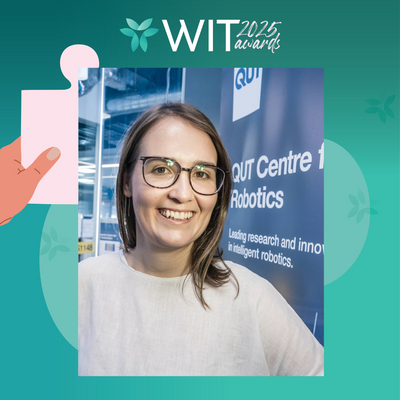
Dr Dimity Miller
Dimity is a researcher at the Queensland University of Technology, tackling one of the biggest challenges in Artificial Intelligence: reliability. Despite impressive advancements and investment in AI, uptake is limited by a lack of trust fuelled by AI’s potential for unexpected and possibly harmful failures. In the fields of robotics and computer vision, she creates new AI algorithms that withstand the challenges of real-world deployment to be more reliable and trustworthy.
Leading her team of research students, she translates these innovations into practice through industry-partnered projects in high-impact areas. In brief, these span inspection and maintenance of Australia’s critical national infrastructure, as well as membership in the ELO2 consortium that will deploy Australia’s first lunar robot to the moon in coming years.
She also feeds her research learnings into educating Australia’s emerging professionals. She created and now delivers QUT’s flagship AI unit, which is being delivered to over 2000 students this year—helping to equip the next generation with a practical understanding of how AI works and how they can be responsible AI users in their future careers.
It’s this combination of activities that ensure she loves her job – she gets to build deep, theoretical knowledge to design safer AI technologies, deploy them into real-world applications, and train others to do the same. By combining technical insight, collaboration with industry, and large-scale teaching, She’s working towards a future where AI serves the people and problems that matter most.

